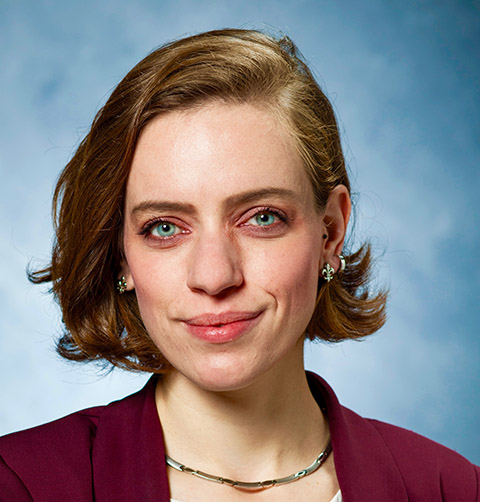Where do our political beliefs come from? How does our personal sense of self affect our political beliefs and actions?
That’s exactly what Alexa Bankert is figuring out. Bankert, who joined SPIA’s faculty in August, is concerned specifically with how our social and political identities shape our political attitudes and behaviors. The concept of identities is complicated, she says, because people tend to confuse objective and subjective group membership. For example, one may objectively appear as a man but more closely, subjectively identify as a woman.
“This discrepancy was something that political science completely ignored that I’m trying to address in my work,” Bankert said.
For years, rational choice theory reigned supreme – voters presumably weigh the risks and rewards of each possible outcome and then pick the most rational option. Bankert rejects this assumption because her research shows that voter behavior is not that simple.
“My research violates a very basic assumption of rational choice,” she said. “When it comes to partisanship, partisanship is not just a function of our political issue preferences – it also predicts them.”
She cites experimental evidence, unique in the political realm, in which she told a research subject that their party supported a particular stance on an issue. She found that strong partisans would blindly agree with their party’s supposed stance, even as the positions varied or were opposite of reality. Similar results followed when studying women’s reaction to sexism. Their ideology – conservative or liberal – predicted their widely varied reactions, not their identifying as a woman.
“This is something we would have overlooked if we didn’t know about the psychological dynamics of decision-making,” she added.
Bankert also recently received major funding to start an experimental political science lab on campus, which she hopes will further her long-term goal of integrating political psychology, a relatively new and innovative side of the field, into the undergraduate curriculum.
In the meantime, she is celebrating what she cites as her biggest career accomplishment – getting this job. She said she is proud to be working alongside colleagues at SPIA whose work she once studied, and teaching students who consistently exceed her expectations.
“I’m being reminded of that every time that I teach. My students are so intellectually curious and so willing to also challenge themselves… I am extremely proud to call myself their teacher.”






